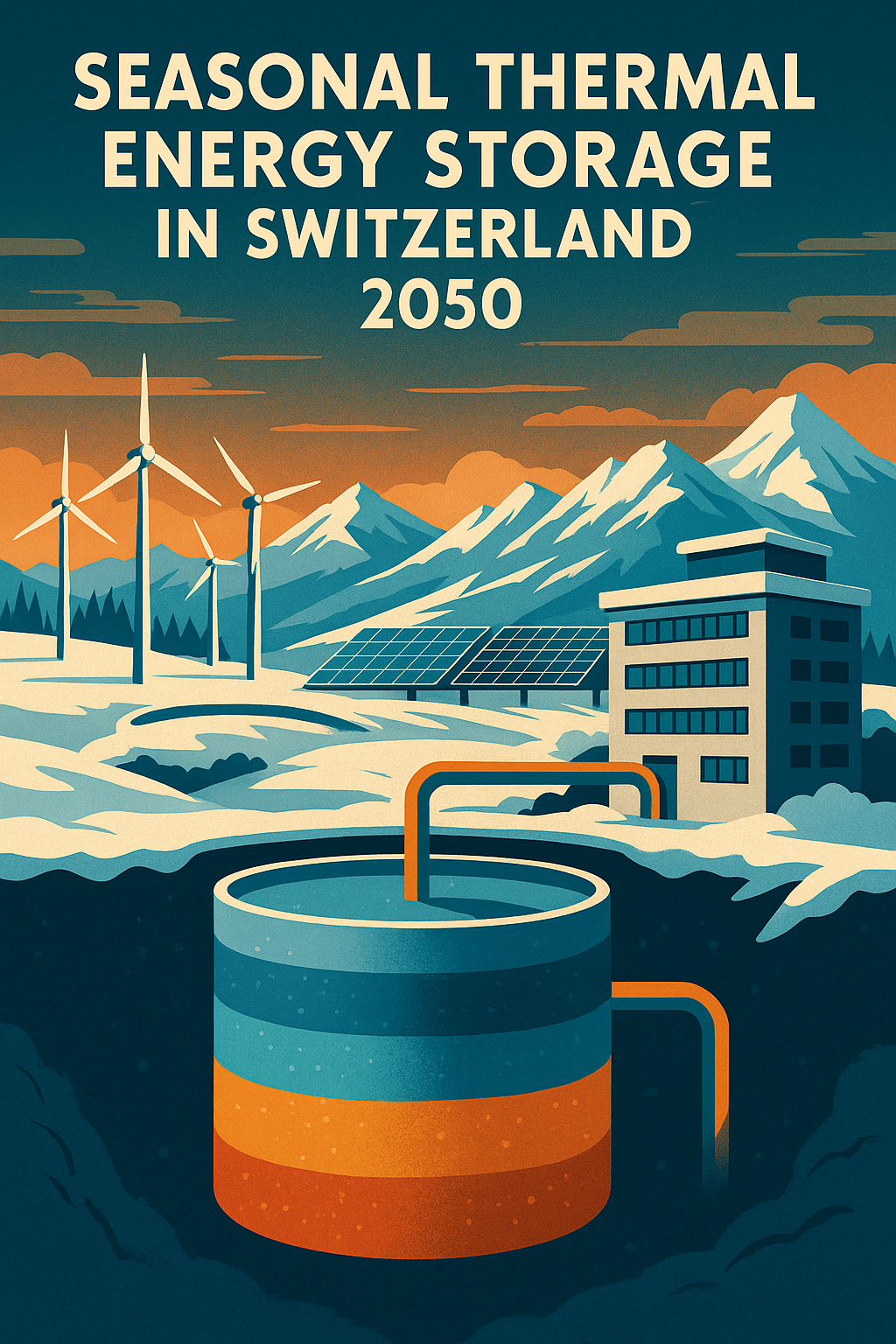Unlocking Flexibility at Scale: Seasonal Thermal Energy Storage in National Energy Transition Pathways
Master’s Thesis Project
Fall 2025
Context
Seasonal Thermal Energy Storage (STES) systems offer a unique opportunity to balance seasonal mismatches between renewable energy supply and heat demand—particularly in temperate regions like Switzerland, where heating needs peak in winter while solar energy is most abundant in summer. As Switzerland moves toward its Net-Zero 2050 objectives, there is a growing need to explore scalable and flexible solutions that ensure year-round energy availability and resilience.
This project focuses on assessing the systemic value of STES at the national level using EnergyScope, a Mixed-Integer Linear Programming (MILP) tool developed for snapshot-based strategic energy planning. By integrating STES into the 2050 configuration of the Swiss energy system, the student will explore its role in decarbonising the heating sector, reducing curtailment of renewable energy, and increasing system flexibility. Furthermore, the project will include Monte Carlo analysis to evaluate the robustness of STES adoption under techno-economic uncertainties such as storage cost, round-trip efficiency, and thermal losses.

Project/Tasks
- Literature review on large-scale thermal energy storage, renewable intermittency, and system flexibility needs.
- Familiarisation with the EnergyScope framework, national energy system datasets, and scenario definition methodologies.
- Integration of STES technologies into EnergyScope’s technology database and model constraints.
- Execution of Monte Carlo simulations to account for uncertainty in key parameters (e.g. STES CAPEX, lifetime, losses).
- Visualisation and interpretation of results to evaluate the systemic impact of STES on emissions, costs, renewable integration, and infrastructure investment.
- Comparison of storage-inclusive vs. storage-free transition scenarios.
- Sensitivity and robustness assessment of STES deployment in national energy pathways.
Skills
- Strong interest in energy systems and thermal energy storage technologies.
- Proficiency in Python, particularly in data handling (e.g. Pandas) and visualisation (e.g. Plotly, Seaborn).
- Familiarity with uncertainty analysis, scenario generation, and basic statistics.
- Understanding of MILP-based modelling frameworks and energy system planning principles. Knowledge of AMPL is a plus.
- Independent and self-motivated work style, with a creative problem-solving mindset.
- Familiarity with GIT for version control.
- Relevant coursework:
- ME-454 Modelling and Optimisation of Energy Systems
- ME-409 Energy Conversion and Renewable Energy
- ENAC/EE courses on sustainability or energy policy (recommended)
- ME-454 Modelling and Optimisation of Energy Systems
Administrative
This project is part of ongoing research under the HeatingBits and GISOptiTES initiatives, involving collaboration between IPESE (EPFL-Sion) and OST (University of Applied Sciences Eastern Switzerland, Rapperswil). The project will be supervised by Sai Sudharshan Ravi (PhD student, IPESE). Interested candidates should submit a CV and a brief motivation letter to sai.ravi@epfl.ch.